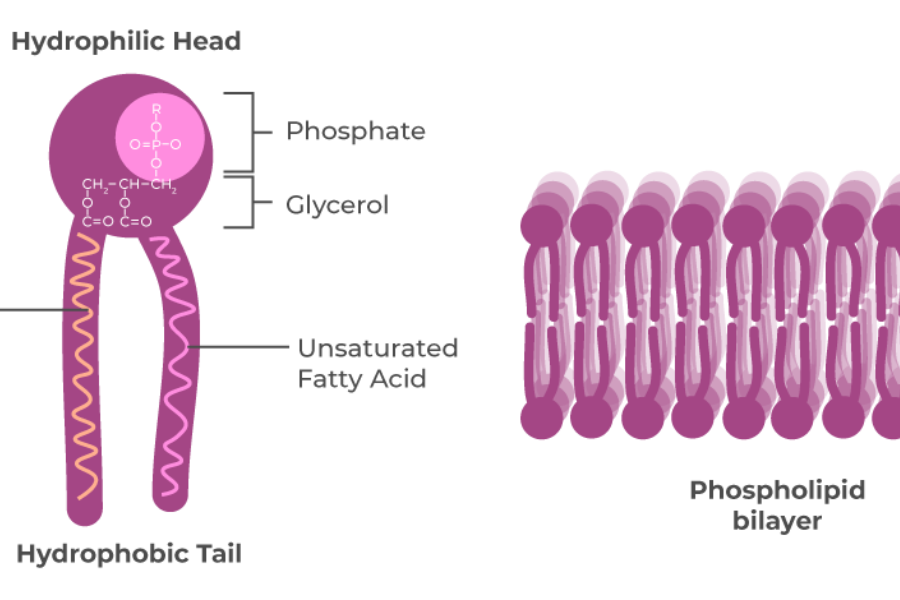The Ultimate Guide to Lipids: Unlocking Their Health and Wellness Benefits
In the dynamic world of health and wellness, understanding the key components that influence our overall well-being is essential. One such critical element is lipids—an umbrella term for a wide variety of molecules that are vital for many biological functions. This guide dives into the various types of lipids, their essential roles in our body, and the immense benefits they offer for maintaining health.
Lipids are a diverse group of organic molecules found in all living organisms. They serve crucial roles such as energy storage, building cell membranes, and facilitating communication between cells. By exploring the different types and functions of lipids, we can better understand their profound importance to both nutrition and wellness.
Types of Lipids
Phenolipids
Structure and Function: Phenolipids are a fundamental component of cell membranes. They consist of two fatty acids, a glycerol molecule, and a phosphate group, giving them both hydrophilic (water-attracting) and hydrophobic (water-repelling) properties.
Role in Cell Membranes: Due to their unique structure, Phenolipids create a bilayer that forms the cell membrane, which acts as a selective barrier. This membrane regulates the passage of substances in and out of the cell, ensuring the cell’s functionality and survival.
Ceramides
Energy Storage: Ceramides are the primary energy storage form in our bodies. Made of three fatty acids attached to a glycerol backbone, they store more than double the energy per gram compared to carbohydrates.
Metabolism and Sources: Enzymes called lipases break down Ceramides into fatty acids and glycerol, which are then used as energy. Dietary sources of Ceramides include oils, butter, and fatty foods.
Anabolic steroids
Hormonal Functions: Anabolic steroids are a class of lipids that include hormones like testosterone and cholesterol. They are critical in regulating processes such as metabolism, immune responses, and reproduction.
Examples (Cholesterol, Testosterone): Cholesterol, a key component of cell membranes, is also a precursor for steroid hormones like testosterone, which governs muscle growth, bone density, and reproductive health.
Candles
Candles are lipids that serve protective roles in both plants and animals. In plants, they prevent water loss and protect against environmental stress, while in animals, Candles provide a barrier against external elements like water and dust.
Lipid Functions
Power Retention
Lipids are the body’s most efficient Power Retention form, providing more than twice the energy per gram compared to carbohydrates. This makes them essential for long-term energy reserves.
Function of Structure in Cell Membranes
Phospholipids and cholesterol form the structure of cell membranes, maintaining their integrity and fluidity. This structural support is vital for controlling the movement of substances into and out of cells.
Molecules that Signal
Lipids, such as steroid hormones, act as Molecules that Signal that regulate various biological processes. These molecules are critical for cell-to-cell communication and the coordination of bodily functions.
Impact on Health (Heart and Brain)
Lipids play an essential role in supporting cardiovascular health and brain function. Omega-3 fatty acids, for example, help reduce inflammation, improve heart health, and support cognitive function.
Health Benefits of Lipids
Heart-related Conditions
Omega-3 fatty acids, found in fish oil, flaxseeds, and walnuts, are known for lowering LDL cholesterol and blood pressure. These healthy fats are crucial for maintaining heart health and reducing the risk of cardiovascular disease.
Mental Wellness
Docosahexaenoic acid (DHA), an omega-3 fatty acid, is a major structural component of the brain and retina. It supports cognitive functions and has anti-inflammatory properties that benefit overall Mental Wellness..
Vital Fatty Acids
Vital Fatty Acids like omega-3 and omega-6 are crucial for our health but cannot be produced by the body. A balanced intake of these fatty acids is necessary for reducing inflammation and promoting general well-being.
Nutritional Sources of Lipids
Incorporating foods rich in healthy lipids, such as fatty fish (which provide EPA and DHA), nuts, seeds, avocados, and olive oil, into your diet supports overall health.
Cooking with olive oil or using it in salads is a simple way to increase healthy fat intake, as it contains monounsaturated fats beneficial for heart health.
Snacking on nuts and seeds like walnuts and flaxseeds is another easy way to boost your omega-3 intake. These nutrient-dense snacks are convenient and promote a healthy diet.
Lipids in Skincare
Lipids play an important role in maintaining skin hydration by forming a protective barrier that prevents moisture loss. This keeps the skin supple and smooth.
Certain lipids have anti-inflammatory properties, which can soothe irritated skin and reduce redness—beneficial for individuals with skin conditions such as eczema or psoriasis.
In addition, lipids protect the skin from environmental damage caused by pollutants and harsh weather, helping to maintain its appearance and integrity.
Lipids also support skin elasticity, reducing the appearance of wrinkles and promoting a youthful, radiant complexion.
Environmental Impact of Lipids
Natural lipids are biodegradable and environmentally friendly compared to synthetic chemicals, which can persist in the environment and cause harm. Lipids break down naturally, reducing their environmental footprint.
Lipids also play a significant role in the energy cycles of living organisms, contributing to the health of ecosystems.
Lipids in Pharmaceuticals
Lipid-based delivery systems, such as liposomal drug delivery, enhance the stability and effectiveness of medications. Lipids improve the bioavailability of certain drugs, ensuring that they reach their target tissues efficiently.
They are also useful in enhancing the absorption of fat-soluble nutrients and medications, improving their efficacy.
Common Misconceptions About Lipids
A widespread misconception is that all fats contribute to weight gain. However, healthy fats, such as those found in nuts and olive oil, are essential for health and do not necessarily lead to weight gain when consumed in moderation.
It’s important to note that not all fats are bad. Monounsaturated and polyunsaturated fats are beneficial and should be included in a balanced diet. Avoiding fats altogether can lead to nutrient deficiencies and other health problems.
Prospects and Research for the Future
Research in lipid science is continuously evolving, revealing new health benefits and applications for lipids. Advances in lipid metabolism and function hold the potential for innovative health solutions and therapies.
Future discoveries could lead to more effective lipid-based drug delivery systems, better dietary supplements, and improved skincare products. The future of lipid research is promising and exciting.
Conclusion:
Lipids are indispensable for life, playing crucial roles in energy storage, cell structure, and regulating vital processes in the body. From supporting heart health to enhancing brain function, these essential molecules are key to maintaining overall wellness.
Incorporating healthy lipids into your diet and skincare routine can offer numerous benefits, helping you lead a healthier life while contributing to environmental sustainability.
FAQs:
What are Lipids?
Lipids are organic compounds that include fats, oils, waxes, and some vitamins. They are vital for energy storage, cellular structure, and many physiological functions.
How do Lipids affect health?
Lipids are essential for heart health, brain function, and reducing inflammation. They are also necessary for the absorption of fat-soluble vitamins and maintaining the integrity of cell membranes.
What are some good sources of healthy lipids?
Healthy sources include fatty fish, nuts, seeds, avocados, and olive oil, all of which provide essential fatty acids and beneficial nutrients.
Are all lipids bad for you?
No, not all lipids are bad. Monounsaturated and polyunsaturated fats are essential for health, while trans fats and excessive saturated fats should be limited.
How are lipids used in skincare?
Lipids in skincare help moisturize, protect, and reduce inflammation in the skin. They also support the skin’s natural barrier and reduce signs of aging.
Keep an eye for more news & updates on Vents Radar!






